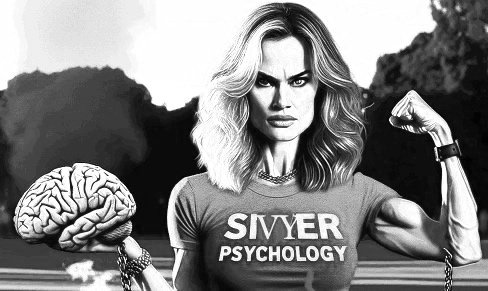ARE WE FREE?
I must agree with the old man; I didn't have any choice :), but my ego makes me reluctant to deny free will. Not only do I need the kudos, but quite frankly, I just don't want to be that pointless. Belief in determinism is a rather disheartening affair. Voltaire once expressed this intuition when he said, "Liberty, then, is only and can be only the power to do what one will."
But what are we to do if we can't hold people accountable for their actions? Our entire society is built on the premise of self-determination. Without it, chaos might reign, we'd have to forgive even the most heinous criminals, and we'd have to chuckle at a person's propensity for extreme violence, thinking, "He was compelled to stab your entire family to death for no reason; what was he like?"
Everything we take for granted about cause and effect in humans relies on the assumption of free will. To be human is to be autonomous and, therefore, accountable. This is precisely why murderers receive life sentences; our legal system operates on the principle that we are responsible for our choices.
Yet, no matter how you approach the puzzle, it appears to point toward fatalism. Until the advent of advanced brain investigation methods, free will was primarily a theological and metaphysical concept, discussed with little regard for biology. Science is only as effective as its tools, and for most of history, the brain remained an enigma. However, today, with our growing understanding of brain function, the metaphysical notion of free will has been reasonably cast aside. Neuroscience has made monumental discoveries, even allowing psychologists to measure thoughts. Consider the significance of this development within the context of free will.
This technology can lay to rest the pseudoscience of thinkers like Freud and Maslow. Unfortunately, it has also revealed that humans are essentially sophisticated biological machines. A species operates within the constraints and design of its biological system. Humans can't perceive ultraviolet light, no matter how hard they try, just as dogs can't speak, no matter how much human language they hear; their hardware doesn't support the application of speech.
In other words, no animal can fight their biological programming. We are all at the mercy of factors like DNA, sex chromosomes, neurotransmitters, hormones, and upbringing. Brains are essentially hardware programs that, by their design, cannot be truly free.
Still skeptical? Try convincing a person with dementia to stop forgetting things, or ask a drunk individual to outthink their inebriation, or criticise someone with Down syndrome for their lower IQ. You wouldn't do any of these things because intuitively, you understand that these conditions cannot be altered solely through willpower. The truth is, no other behaviors are any less resistant to change.
Even the concept of "true love" undergoes scrutiny under determinism. It's not the idealistic notion it's often made out to be; rather, it's reduced to a mechanism selected by nature to ensure the survival of offspring. This is why some animals, like fish, eat their own offspring, and male cats don't engage in paternal care. Love, in this context, is simply not necessary for the survival of their young.
I anticipate some may argue with "soft determinism" or, even worse, "positive psychology" (groan). However, these lines of thought raise questions about why some people can effect change while others cannot. Why is this the case? Nobody aspires to be obnoxious, creepy, perverted, lazy, or unintelligent. This is why concepts like plastic surgery and medication exist — because personal change often requires external interventions rather than sheer willpower.
I’m sure victims of slave trafficking would appreciate being told their predicament was all in their mind.
I'm sure victims of slave trafficking wouldn't appreciate being told their circumstances are all in their minds. A few months ago, I was removed from a popular psychology Instagram page for asking how someone like Atefeh Rajabi, a 16-year-old Iranian girl, could have improved her circumstances through her imagination. Atefeh was trapped in a forced marriage and attempted to change her fate by engaging in a sexual relationship outside of marriage. In 2004, she was executed. Sometimes, people confuse the freedom they have in the West with free will.
However, people do manage to lose weight, overcome addiction, and adopt healthier lifestyles. So, can't some misguided thoughts and behaviours change? According to fatalists, the answer is a resounding no. Any change you bring about will ultimately result from education and conditioning, neither of which you have orchestrated. Therefore, these changes won't truly be yours to claim.
Consider yourself fortunate for being born in a time and place that facilitated your education and exposure to the wisdom of others. The saying "standing on the shoulders of giants" illustrates the concept of using the insights of past thinkers to make intellectual progress.
And if you thought your politically correct ideologies stemmed entirely from your own intellect — think again! Now you know, you can stop borrowing other people's morals and cease virtue signaling. Did I mention cancel culture? Grrrrr.
Be grateful you weren't born 200 years ago. Not only would you be deceased by now, but you might also hold some rather unsavory beliefs — possibly racist, sexist, or homophobic, depending on your race, country, and gender.
Your brain's configuration, your environment, even your family circumstances are all products of fate's whims. Whether you turned out to be an angel or an arsehole, it's not entirely your fault. So, you might as well stop feeling bad about... well, anything, really



